Because love conquers all, here’s another picture of the divine Iris Dusky Challenger. She has utterly conquered me.
Happy beauty, beauty happy, dusky, lit with love.
Each day I have the pleasure of going to see her, but it is not simply visual. There is scent, too. She smells as good as she looks. Best In Show.
I went to Cambridge to visit family and on the way back thought to myself, what about a little stop at Ryton? Ok, it’s a bit further, requiring a meandering detour into the Warwickshire countryside, but surely that would be a better break than the hellhole that is almost any motorway services?
Ryton, near Coventry, is the home of Garden Organic, the charity that advocates for organic practices. As their website explains,
Garden Organic started life in a comfrey patch in Bocking, Essex. It was here that keen organic grower Lawrence Hills began experimenting with the herb as a natural fertiliser in 1954.
From his smallholding, he began to encourage other gardeners to share his research into organic growing and companion planting, and four years later, created a charitable research association to support the experiments. He named it the Henry Doubleday Research Association (HDRA) after the 19th century Quaker smallholder who brought comfrey to Britain.
In an adventitious weaving of those odd threads that give life’s material the heft and chunk of tweed rather than the smoothness of silk, Lawrence. D. Hills came into my life from two directions long before I became interested him or in gardening. He was a Presence, as Wordsworth might say, and the name resounded and stayed with me, though I wasn’t listening.
In the mid-1970’s, when I lived in the Feminist Commune, his book was a handbook to the women in our house who dug up the back garden lawn and planted potatoes and flowers and peas. I was mostly indoors, heading towards literature. I seem to remember being conscripted into taking a turn at double digging, which was a thing then, and I know I didn’t like it. So garden schmarden! But my commune sisters-in-struggle gardened organically and, though a man, Lawrence. D. Hills, in book form, was alongside them.
Before that, my first husband, (yes, I’d been married and divorced by the age of twenty) was also a huge devotee. He worked in the Corpy Parks Department at what may have been the height of the ‘plant conifers’ and ‘chemicals will save the world from weeds’ manias. In our little make-your-own-world-bedsit in North Drive, along with Aldous Huxley and D.H.Lawrence, Lawrence. D. Hills was on the bookshelf. He was what I mistakenly thought of back then as an oddball. But now I see, there’s a family relationship there with Huxley and Lawrence. And perhaps with the oddballness of us child-newly-weds, too.
In neither of those two situations could I ever have imagined that half a century later I would own my own copy of ‘Grow your Own Fruit and Vegetables’, let alone ‘Comfrey: Past Present and Future.’ But now I see L.D.Hills was a prophet to stand alongside Rachel Carson and Wendell Berry. These books, and the works of Carson and Berry, are all available secondhand. Recommended.
But back to Ryton, the garden home of the organisation Mr. Hills founded. Ryton is in my mind because I listen to the Garden Organic Podcast on my drive to Calderstones, and after about a year of listening to it, I joined Garden Organic and the Heritage Seed Library as a member.
And so at last I’ve caught up with my 1970’s friends.
Yes, I fear the damage industrialised human life has caused and is causing the planet and all its life forms. And working with organic principles (see below) helps me feel I am doing something about that damage. Every time I work on the compost heap I know I am literally changing the world. And yes, that ‘something’ is on the smallest of scales, perhaps, but this is the only scale in which I can make a difference.
Remember the Mary Oliver poem ?
The Journey One day you finally knew what you had to do, and began, though the voices around you kept shouting their bad advice— though the whole house began to tremble and you felt the old tug at your ankles. "Mend my life!" each voice cried. But you didn't stop. You knew what you had to do, though the wind pried with its stiff fingers at the very foundations, though their melancholy was terrible. It was already late enough, and a wild night, and the road full of fallen branches and stones. But little by little, as you left their voices behind, the stars began to burn through the sheets of clouds, and there was a new voice which you slowly recognized as your own, that kept you company as you strode deeper and deeper into the world, determined to do the only thing you could do— determined to save the only life you could save.
How I love that emergence of the new voice from the cacophony of others - ‘your own’ - and oh, how long it takes. How hard to hear.
Luckily for me, the day I visited Ryton happened to be an open day and I was able to join a tour led by Head Gardener Emma - I felt like a right fan when I recognised her voice from the podcast. Much better than that time I saw David Walliams flapping along in a huge vampire leather coat outside Blacklers*.
Good things at Ryton for me:
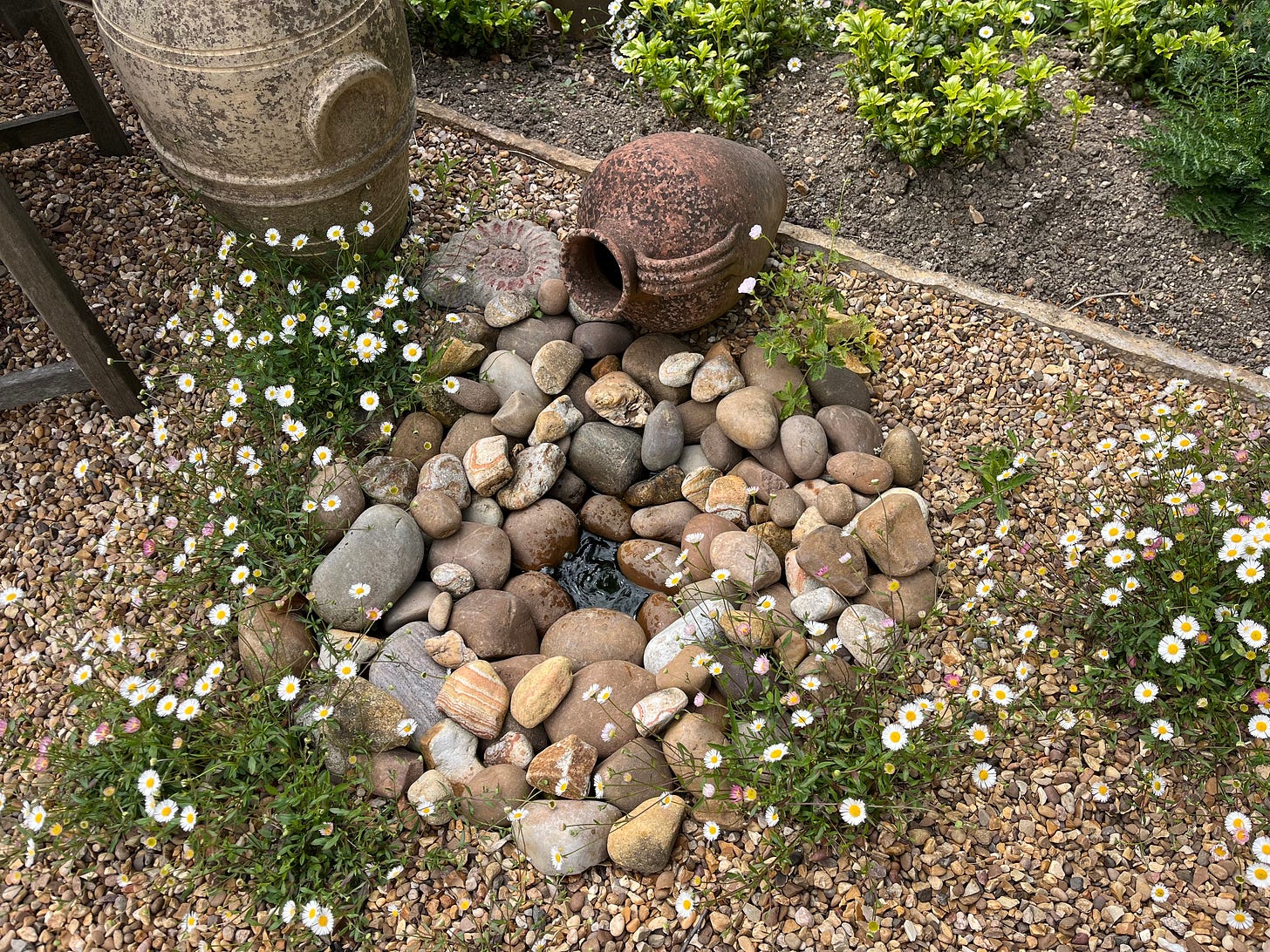
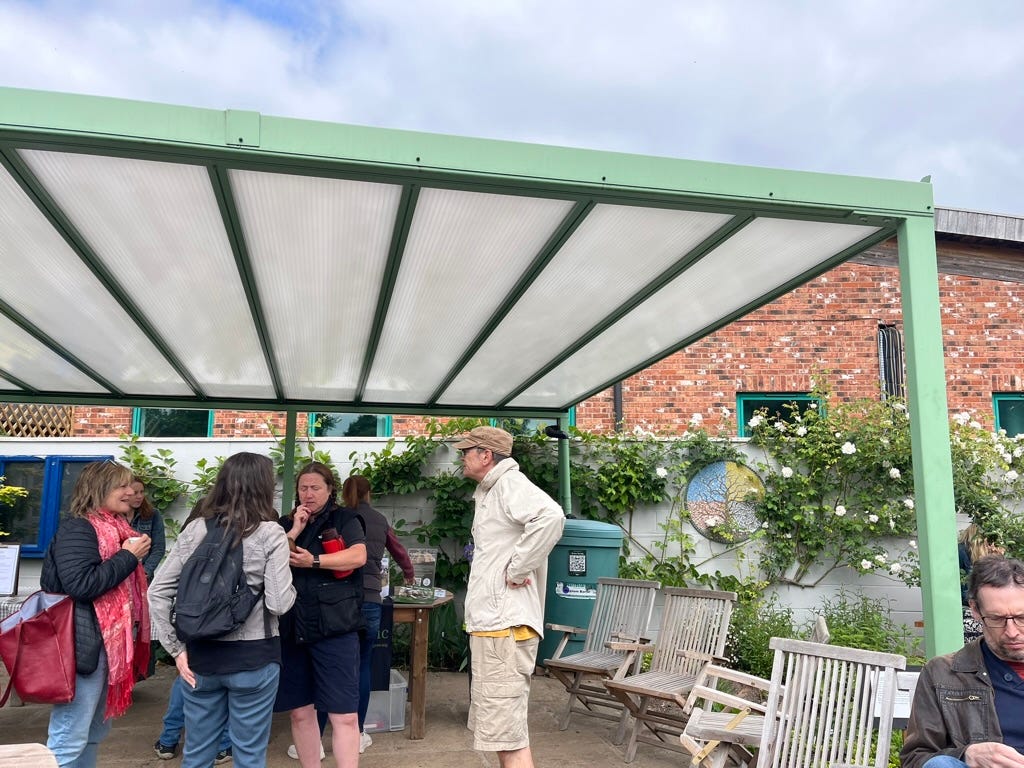
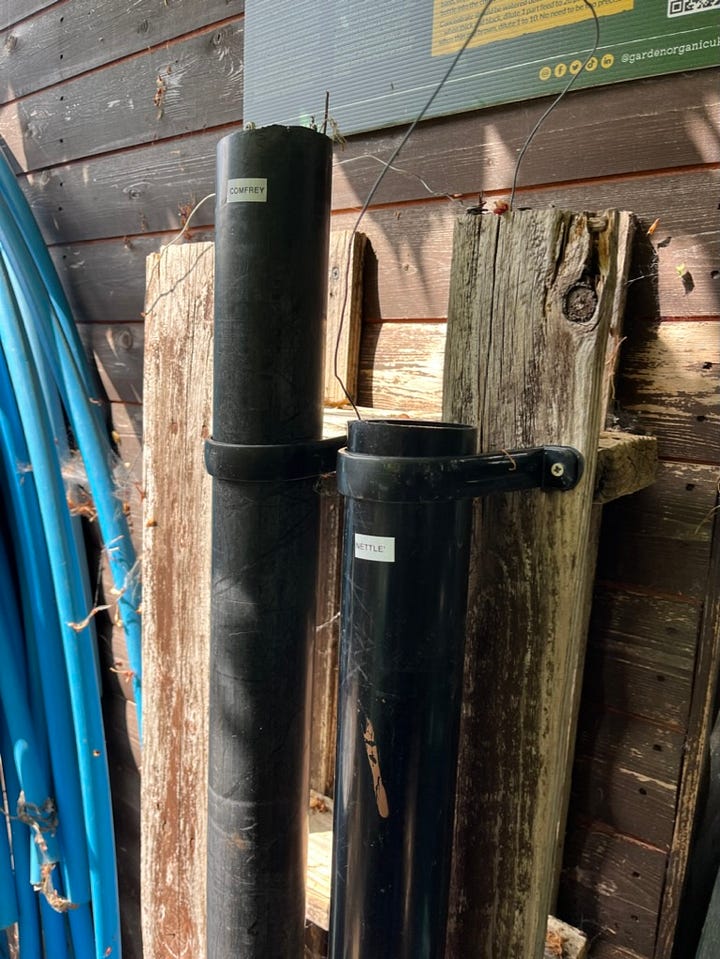
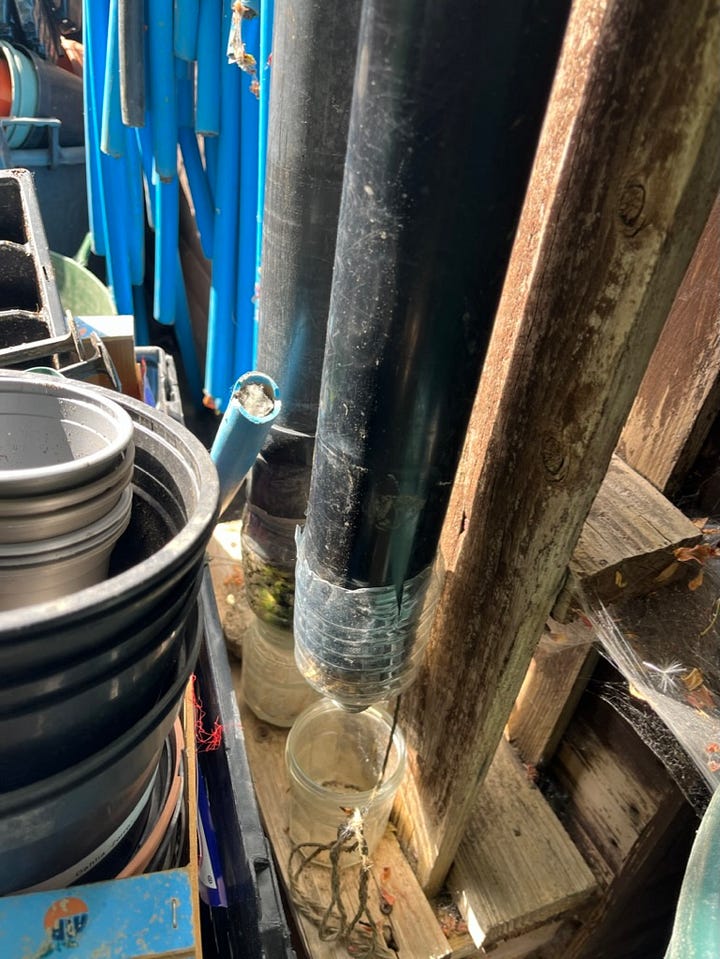
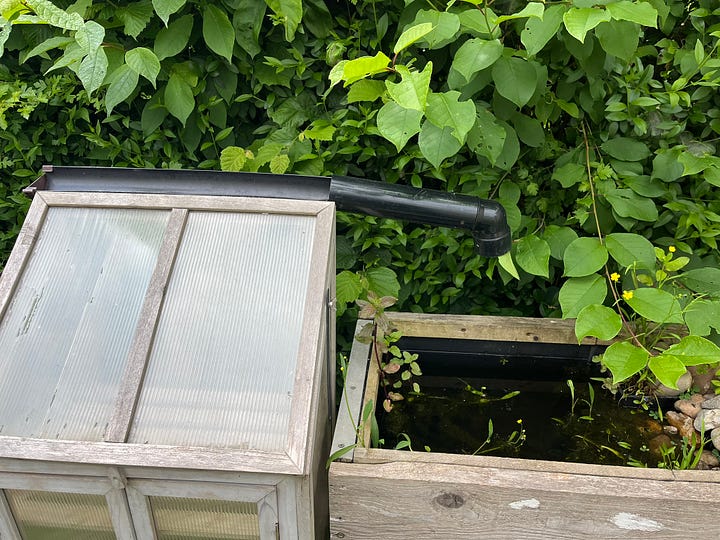
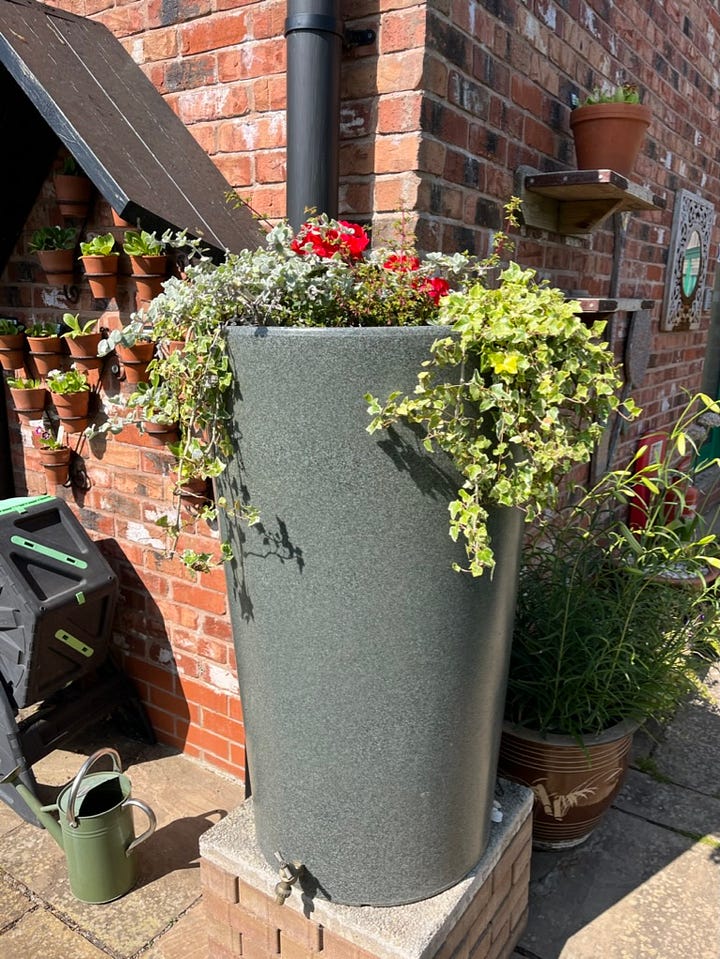
I have more good things but I can’t show them, because out of space. But here’s the famous comfrey, Maybe another time. Meanwhile,
The Five Principles of Organic Gardening:
Build and Maintain Soil Health
Encourage Biodiversity
Use Resources Responsibly
Avoid Using Harmful Chemicals
Maintain a Healthy Growing Area
*Blacklers, a locally famous Liverpool department store, now defunct, once had delusions of grandeur but, by the time I saw David Walliams in his voluminous coat , it had become a precursor to Poundland.
In the Garden, Not So Good:
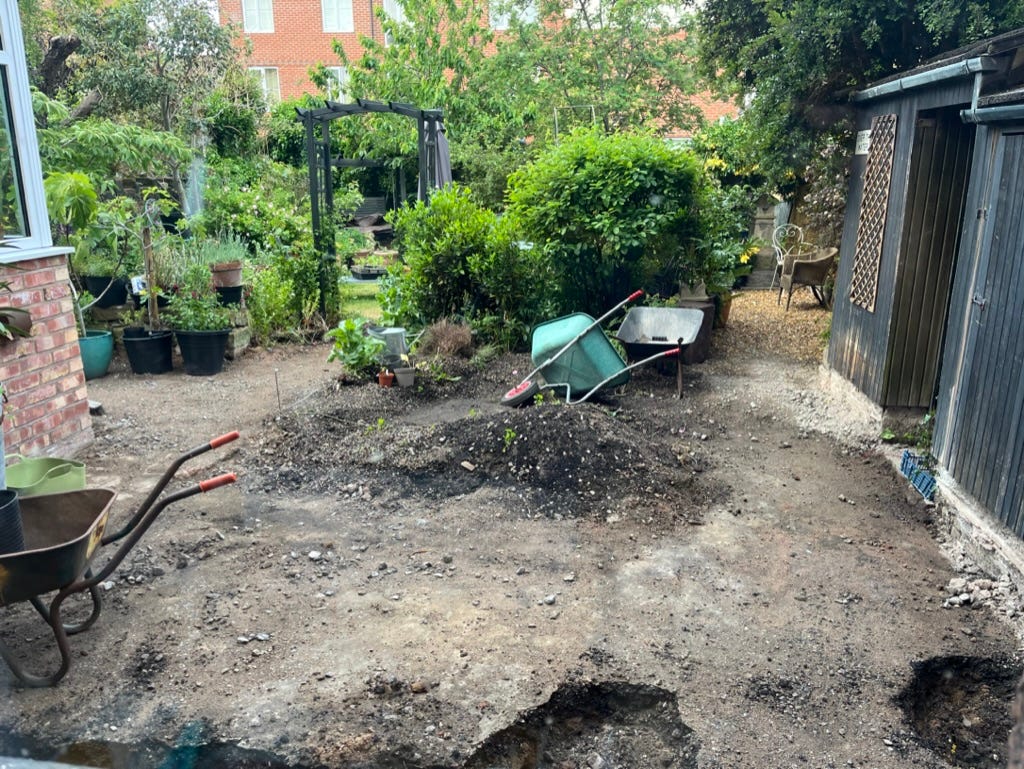
But also Good in the Garden:

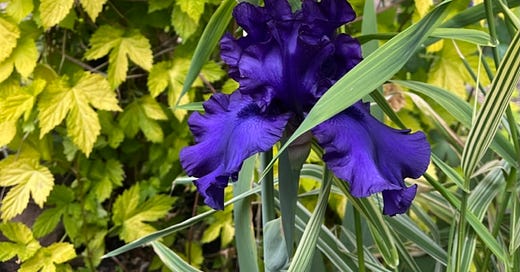



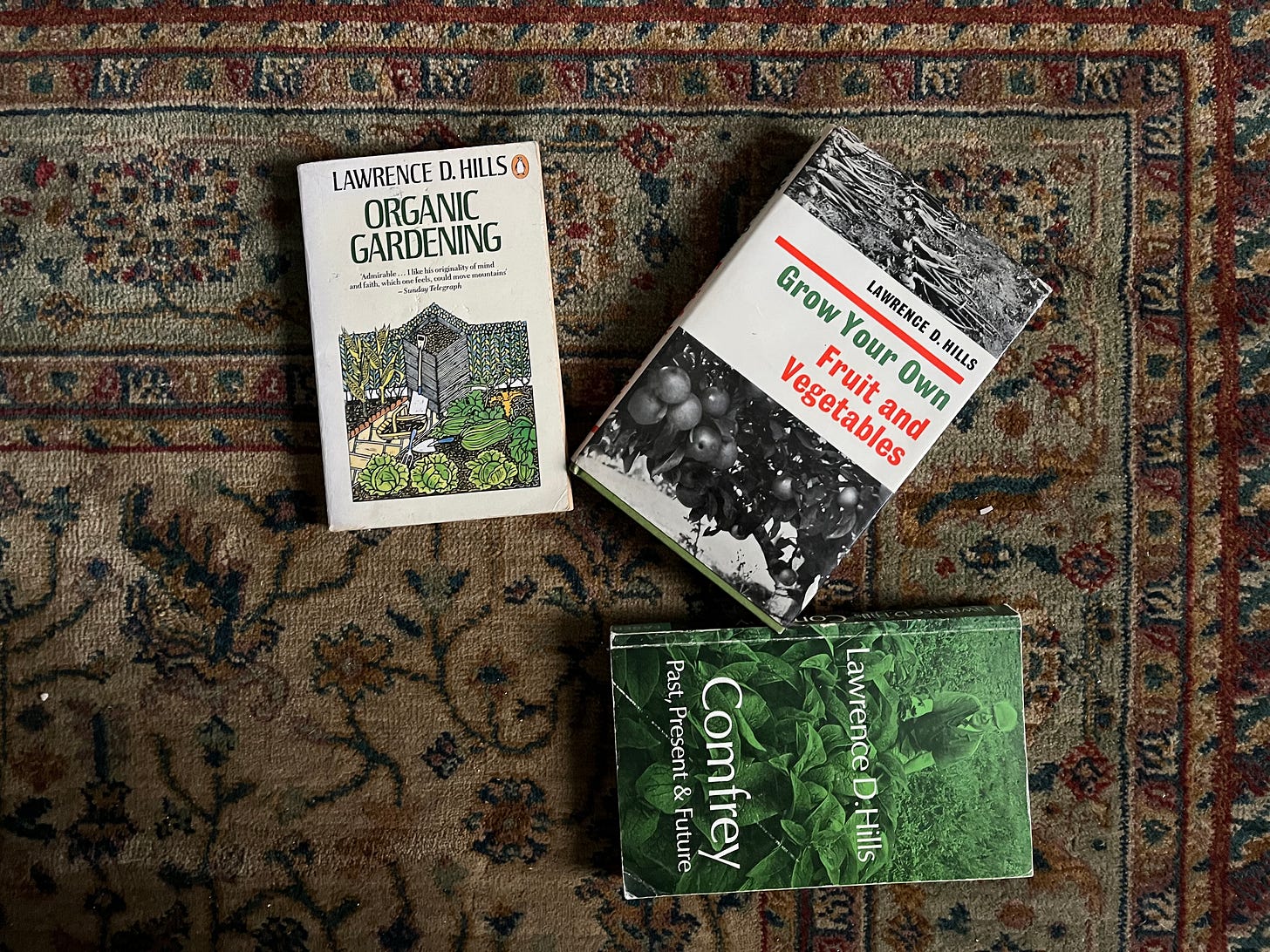
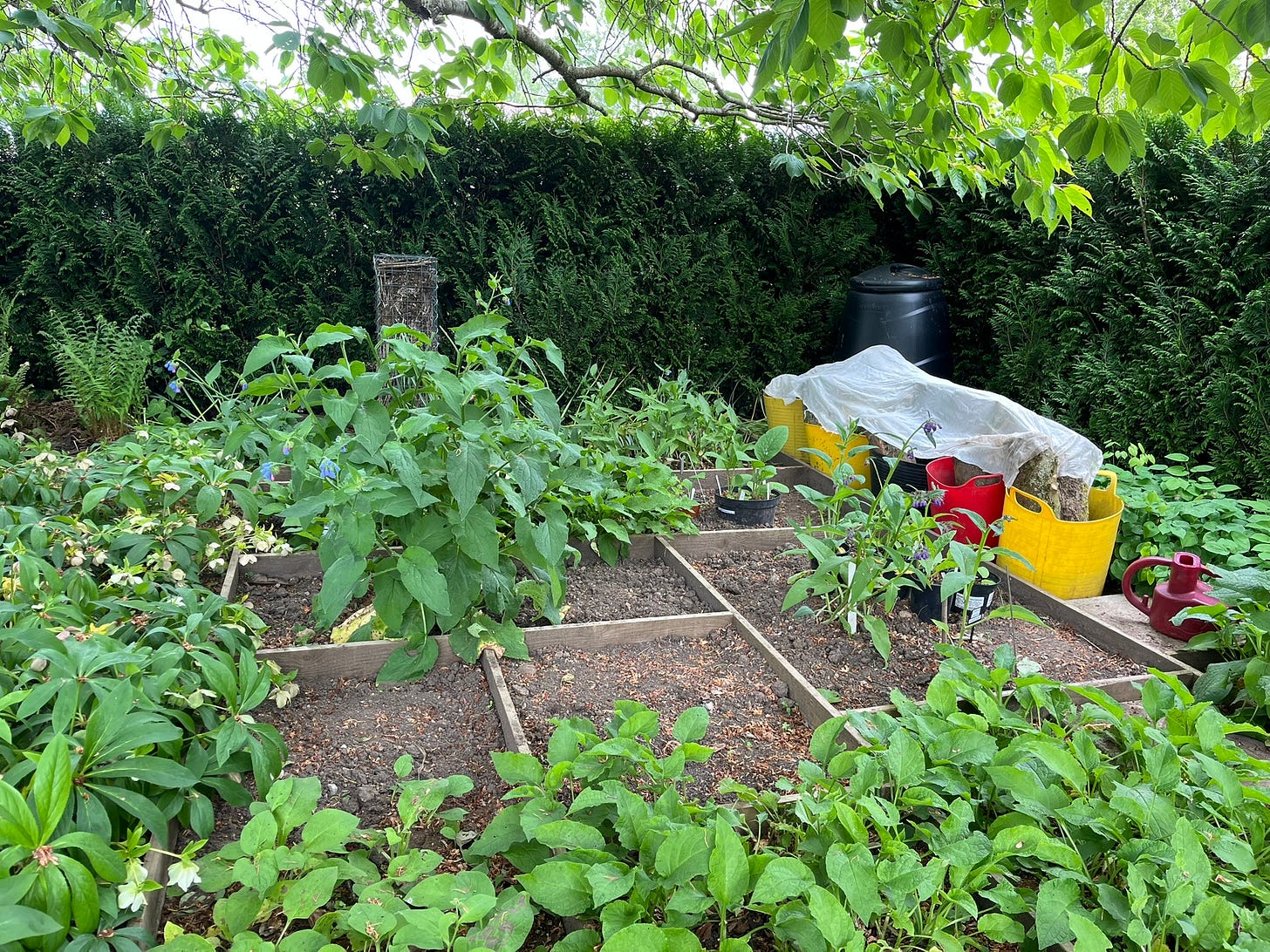
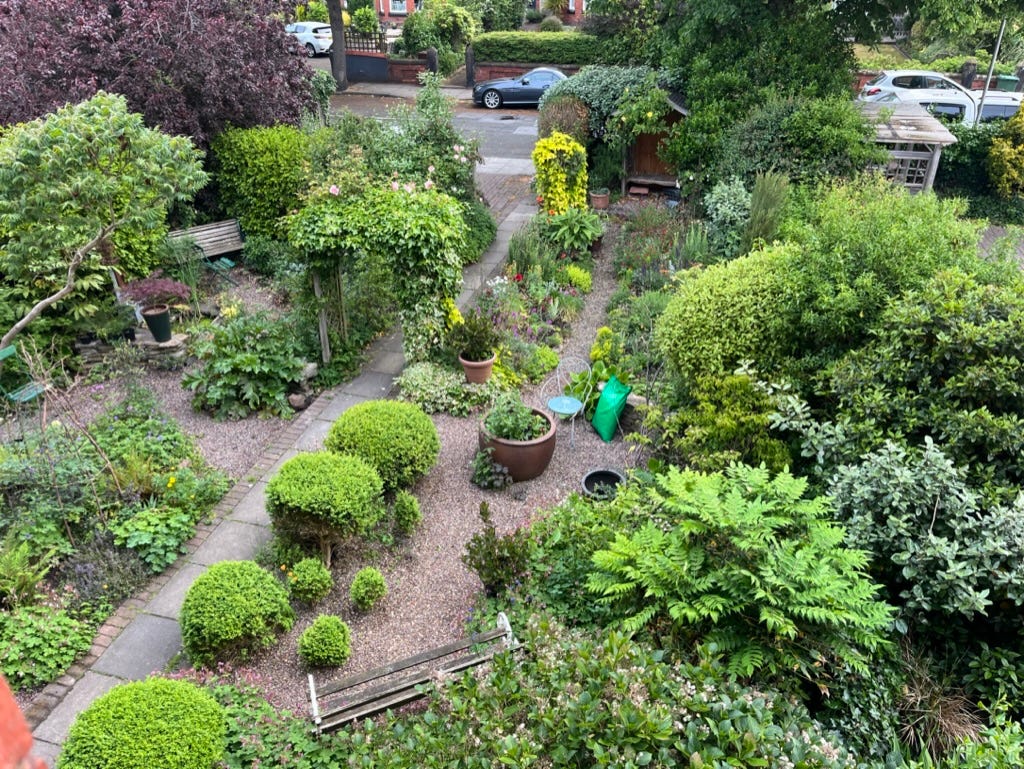
Love the glorious iris, love the endeavours in the back garden, love that poem, love the glimpse into your 1970s. Awesome.
Thank you for this lovely post. Of course I now need a solar-powered bubble pond!